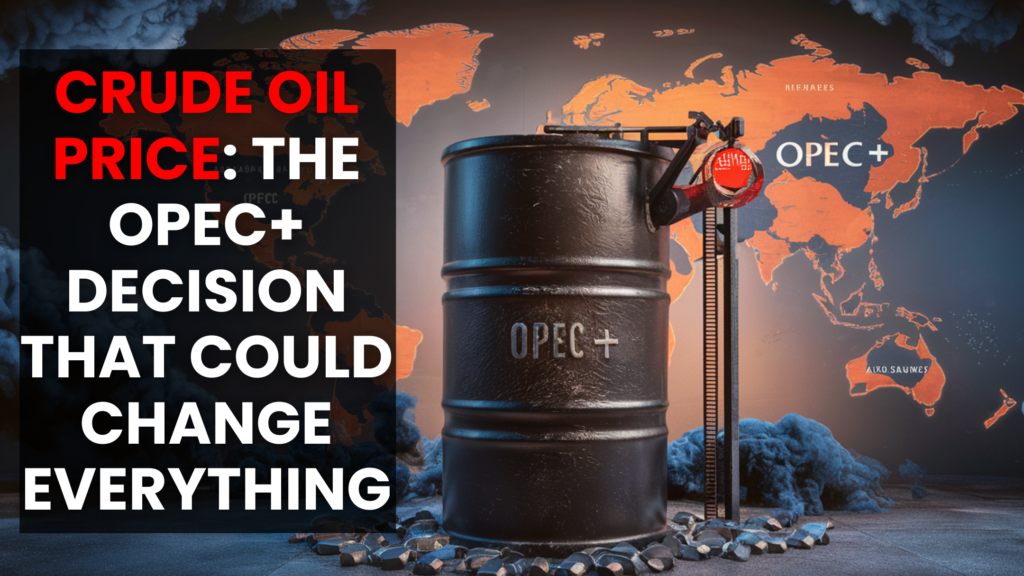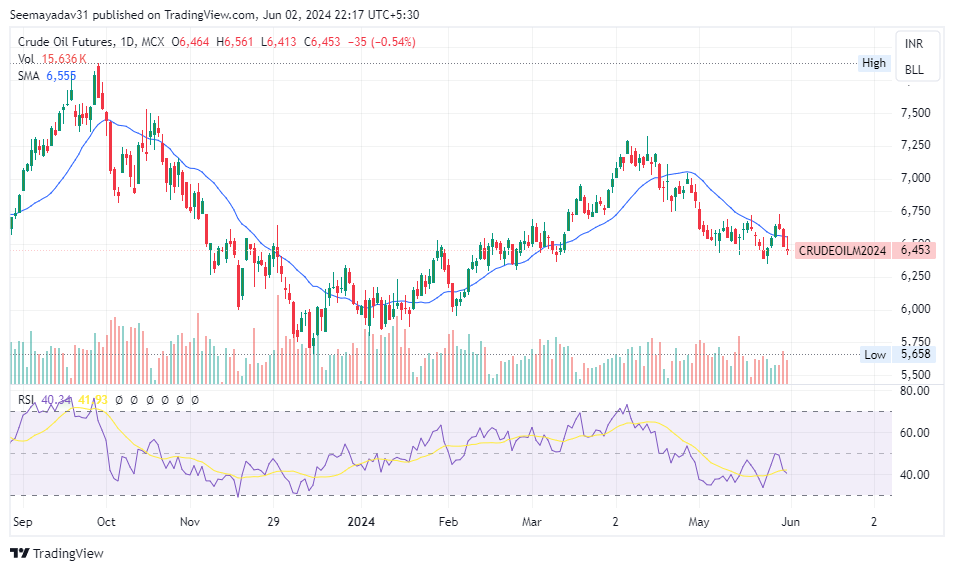
The Crude oil price remained under pressure last week. On a monthly basis, prices fell by more than five percent, which was the worst performance since December 2023.
The oil market has been under pressure in recent weeks, as the increase in borrowing costs for a longer period of time can slow the economy and slow down oil demand.
Several Federal Reserve officials have noted that they need more time to gain confidence in cooling inflation before starting cutting rates.
Recent EIA data showed that US crude inventories fell by 4.2 million barrels last week, compared with expectations for a 1.9 million barrel draw.
However, US gasoline stockpiles rose 2 million barrels last week despite forecasts for a 400,000-barrel draw, indicating weak demand ahead of the long Memorial Day weekend.
Apart from that, OPEC+ agreed on Sunday to extend most of its deep oil output cuts well into 2025, exceeding expectations, as the group seeks to shore up the market amid tepid demand growth, high interest rates and rising rival U.S. production.
Oil prices trade near $80 per barrel, below what many OPEC+ members need to balance their budget. Worries over slow demand growth in top oil importer China have weighed on prices alongside rising oil stocks in developed economies.
The Organization of the Petroleum Exporting Countries and allies led by Russia, together known as OPEC+, have made a series of deep output cuts since late 2022.
OPEC+ members are currently cutting output by a total of 5.86 million barrels per day (bpd), or about 5.7% of global demand.
Those include 3.66 million bpd of cuts, which were due to expire at the end of 2024, and voluntary cuts by eight members of 2.2 million bpd, expiring at the end of June 2024.
On Sunday, OPEC+ agreed to extend the cuts of 3.66 million bpd by a year until the end of 2025 and prolong the cuts of 2.2 million bpd by three months until the end of September 2024.
OPEC will spend one year on gradually phasing out cuts of 2.2 million bpd starting from October 2024 until the end of September 2025.
“We are waiting for interest rates to come down and a better trajectory when it comes to economic growth… not pockets of growth here and there,” Saudi Energy Minister Prince Abdulaziz bin Salman told reporters.
Amrita Sen, co-founder of Energy Aspects think tank, said: “The deal should allay market fears of OPEC+ adding back barrels at a time when demand concerns are still rife”.
OPEC expects demand for OPEC+ crude to average 43.65 million bpd in the second half of 2024, implying a stocks drawdown of 2.63 million bpd if the group maintains output at April’s rate of 41.02 million bpd.
The International Energy Agency, which represents top global consumers, estimates that demand for OPEC+ oil plus stocks will average much lower levels of 41.9 million bpd in 2024.
Technical Outlook – Crude Oil Price

Crude oil price retreated from an intraday high of 6,561 and fell to 6,453 from the previous day’s 6,488, down 0.54%.
Daily price action resulted in a long tail doji candle. Although the RSI does not support the price momentum. Furthermore, prices are trading below the short-term moving average.
All the above points suggest that the crude oil price may fluctuate in the near future. On the downside, there is immediate support at 6380, a break below could pull prices to 6320-6280.00.
Otherwise, near-term consolidation can be expected between 6420-6580.
In addition, the recent OPEC+ cut may support prices, but jitters from the US interest rate decision will continue to increase volatility.
Happy Trading!
Commodity Samachar
Learn and Trade with Ease
Also Read:Economic Data: This week’s focus is on US NFP, Canada and ECB rate decision! Gold’s Bearish Trend ?: A Shift in Investor Sentiment
Recommended Read:The Commodity Market — Why is it advantageous to traders?
Want Help On Your Trade?
Chat With Our Analyst